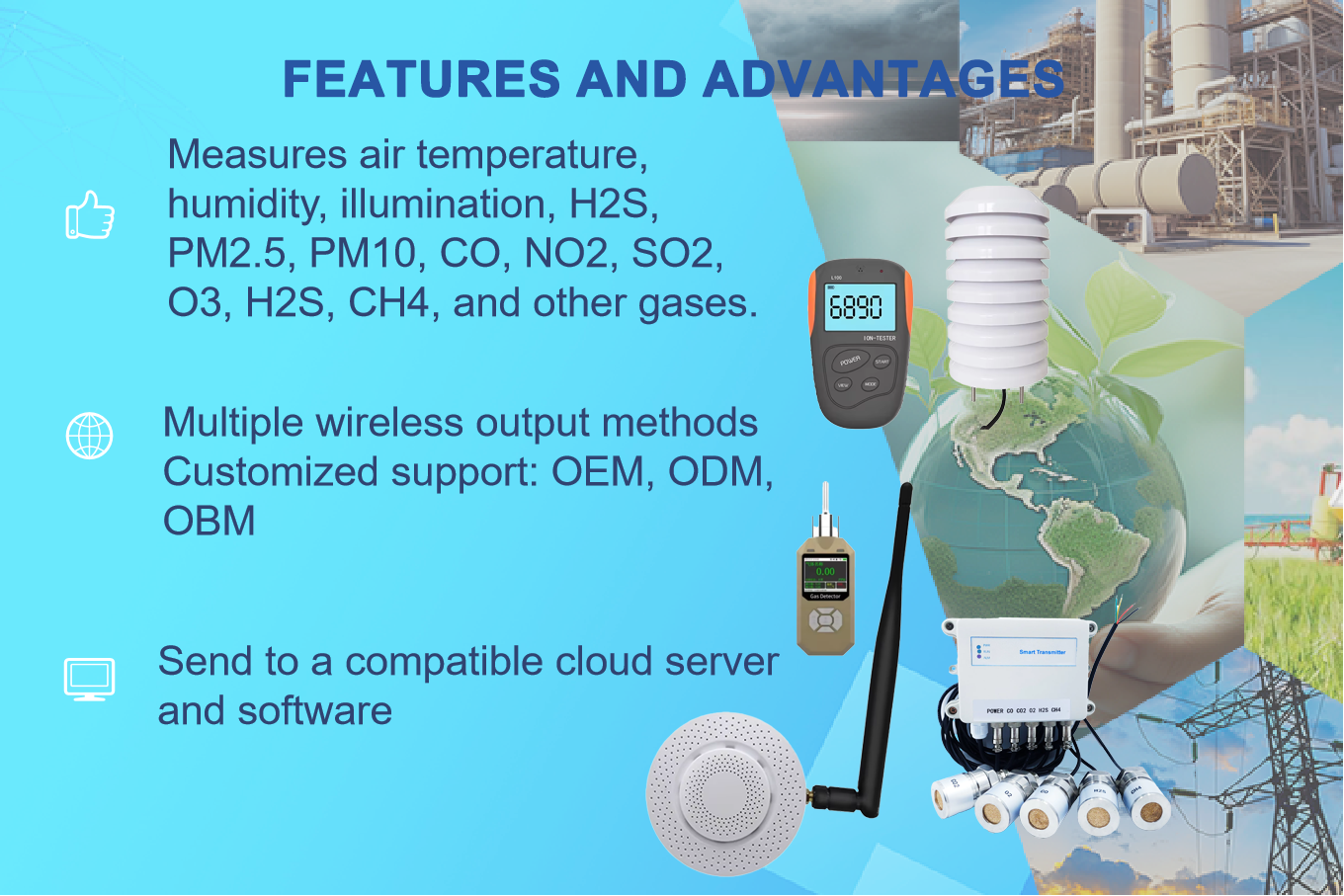As the world’s largest oil exporter and a country rapidly advancing economic diversification, Saudi Arabia has actively adopted gas sensor technology in recent years to address challenges in energy production, urban safety, and environmental monitoring. Below is an analysis of typical application scenarios and their impacts:
1. Oil and Gas Industry: Leak Detection and Safety Production
Application Case:
Saudi Aramco has extensively deployed combustible gas (e.g., methane, hydrogen sulfide) sensor networks in oil fields, refineries, and pipelines. For example, at the Ghawar Oil Field in the Eastern Province, sensors are integrated with IoT platforms to monitor gas concentrations around facilities in real time.
Roles:
- Preventing Explosions: Rapid detection of combustible gas leaks triggers automatic shutdown systems and alarms, avoiding fires or explosions.
- Reducing Resource Waste: Early leak detection minimizes energy losses, saving millions of dollars annually.
- Ensuring Worker Safety: Portable hydrogen sulfide sensors are deployed in high-risk areas to protect employees from toxic gas exposure.
2. Smart City Initiatives: Air Quality and Public Safety Monitoring
Application Case:
In Saudi Arabia’s NEOM smart city project and the Riyadh capital region, gas sensors are integrated into urban infrastructure to monitor air quality (e.g., PM2.5, NO₂, SO₂) and harmful gases in public spaces.
Roles:
- Environmental Pollution Control: Real-time tracking of pollutant dispersion in industrial areas and transportation hubs supports environmental departments in formulating emission reduction strategies.
- Public Health Protection: Air quality warnings are issued to residents via public displays or mobile apps, reducing health risks.
- Counter-Terrorism and Security: Chemical warfare agent (CWA) sensors are deployed in crowded places such as metro stations and shopping malls to prevent terrorist attacks.
3. Seawater Desalination and Water Resource Management: Chlorine Leak Monitoring
Application Case:
As the world’s largest producer of desalinated water, Saudi Arabia uses chlorine gas for water treatment in plants like the Jubail Desalination Plant, where chlorine gas sensor networks are installed in workshops.
Roles:
- Preventing Toxic Gas Spread: Upon detecting chlorine leaks, ventilation systems and emergency responses are immediately activated to prevent poisoning.
- Ensuring Water Supply Safety: Maintaining desalinated water quality standards while ensuring the stable operation of critical infrastructure.
4. Religious Events and Large Gatherings: Crowd Safety Management
Application Case:
During the Hajj pilgrimage in Mecca, carbon dioxide (CO₂) and oxygen (O₂) sensors are deployed in the Grand Mosque and surrounding tent areas to monitor air quality in crowded spaces.
Roles:
- Preventing Suffocation Incidents: Real-time data regulates ventilation systems to avoid oxygen deficiency due to high CO₂ concentrations.
- Supporting Emergency Response: Integrated with big data platforms, the system provides management authorities with insights for crowd evacuation and resource allocation.
5. Desert Agriculture and Greenhouse Gas Monitoring
Application Case:
In Saudi desert agriculture projects, such as greenhouse farms in the Al-Kharj region, ammonia (NH₃) and carbon dioxide sensors are used to optimize fertilization and ventilation systems.
Roles:
- Improving Crop Yield: Regulating CO₂ concentrations enhances photosynthesis while preventing excessive ammonia from harming plant growth.
- Reducing Greenhouse Gas Emissions: Monitoring methane and nitrogen oxides generated by agricultural activities supports Saudi Arabia’s “Green Initiative.”
Conclusion: Technology Integration and Future Directions
Through gas sensor technology, Saudi Arabia has achieved:
- Enhanced Efficiency in the Energy Sector: Ensuring the stability and safety of the global energy supply chain.
- Smart City Advancement: Promoting sustainable development in future city projects like NEOM.
- Religious and Public Safety: Improving risk management capabilities for large-scale events.
- Environmental Governance: Supporting Saudi Arabia’s environmental goals under Vision 2030.
- Complete set of servers and software wireless module, supports RS485 GPRS /4g/WIFI/LORA/LORAWAN
For more gas sensor information,
please contact Honde Technology Co., LTD.
Email: info@hondetech.com
Company website: www.hondetechco.com
Tel: +86-15210548582
Post time: Aug-22-2025


